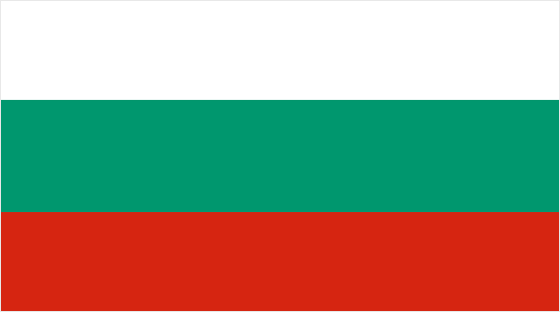Bulgaria

Overview
Bulgaria’s state-owned electronics companies specialized in computer hardware and basic programming for the Soviet bloc before the end of Communist rule. Now, a generation of Westernized engineers and programmers with a global outlook underpins the country’s emergence as the technology capital of the Balkans. The capital city, Sofia, is the focal point of the country’s tech industry, accounting for the vast majority of software development firms.
Over the past decade, Bulgaria has undergone an impressive transition. Virtually all organizations, private and public, have digital transformation on their agenda. Its strategic location, competitive costs, and skilled labor pool offers attractive outsourcing opportunities, with emerging technologies such as AI, cybersecurity, and blockchain bolstered by a supportive environment for start-ups and innovation hubs.
A nation of seven million people, Bulgaria borders Turkey, Greece, North Macedonia, Serbia and Romania. With a history dating to the 7th century, it’s one of the oldest European countries – and the only one that has never changed its name. Unsurprisingly then, it ranks only behind Italy and Greece in terms of the number of archaeological sites. However, it also has a forward-looking perspective as a member of the European Union, NATO and the Council of Europe.
The Accelerance Global Network is the most curated list of high-quality global teams ever assembled.
3500
Developers
Total number of developers in our certified partner network by country
2
Certified Partners
Total number of certified partners in our global network by country.
12hrs
Time Travel (From NY)
Average flight time from NY to the major cities in the country.
48
Partner Innovation capability
The score reflects investment in STEM progrms and IT funding by country.
84
Partner Skill Level
Level of workforce skills and quality of education, including factors such as digital literacy, interpersonal skills, etc.
51
Partner Global Competitiveness
National productivity based on 12 core pillars, including government policy, infrastructure, economic stability, etc.
High
Software Outsourcing Readiness
Overall rating, based on the maturity of the tech sector, socio-political conditions, and on-the-ground research by Accelerance.

Talent Pool & Education
With an education system focused on engineering and computer science, Bulgaria is churning out a highly technical talent pool from more than 50 universities offering STEM, ICT, or other tech and business degrees. JavaScript and Java, followed by Python, .NET. are among the most popular languages among developers. Enterprise Software dominates the market with an estimated market volume of US$118.20m in 2024.
The tech industry in Bulgaria predominantly encompasses software development, IT outsourcing, fintech, e-commerce, telecommunications, and enterprise software solutions. There are approximately 66,000 software developers in the country, placing it fifth in terms of engineers in Eastern Europe. Almost a third are women, the highest proportion of female ICT specialists in Europe. The capital, Sofia, has been described as a “women’s Silicon Valley”.
Bulgaria’s proximity to Western Europe and cultural similarities with US and Western European countries, combined with a diverse range of tech skills, multilingual talent, affordable labor cost, and favorable taxation are among the country’s key advantages. Despite its strengths, however, the tech sector faces challenges such as talent retention and skill gaps in emerging technologies.
Language
The national language is Bulgarian but a large per centage of students study English and the country is rated “high” on the EF English Proficiency Index. Most people living in the larger cities have some English.

Economic Outlook
Bulgaria has enjoyed impressive economic development during the past quarter-century. After joining the World Trade Organization at the end of 1996, the country enjoyed much greater foreign investment, which further increased after it joined the European Union in 2007. In recent years, it has been impacted by geopolitical and domestic political disruption. After a post-pandemic rebound in 2021, business and consumer confidence took a hit due to steep rises in energy and food prices attributed to the Russian invasion of Ukraine. The economic outlook continues to be dampened by political uncertainty.
The strongest sectors in the economy are energy, mining, metallurgy, machine manufacturing, agriculture and tourism. In 2024, the International Monetary Fund ranked Bulgaria 67th of 188 countries for GDP. However, it is the poorest EU member, recording a GDP per capita 36 % below the EU average.
The Economist Intelligence Unit says a lengthy political crisis has hurt investor confidence and this will weigh on the economy in the short term, with another government collapse and snap election remaining a risk. However, Bulgaria is also expected to benefit from the EU's Recovery and Resilience Facility, which will support digitalization and adoption of green technologies. Bulgaria pegs its currency to the euro and hopes to become the 21st member of the euro currency zone.
Political Conditions
The political landscape remains unstable and fluid, with repeated elections leaving the country in stagnation. Lack of trust and strong divisions among parties have prevented them from producing a stable government.
Bulgaria’s political framework is a parliamentary representative democratic republic where the prime minister is head of government. After 45 years as a single party state, Bulgaria became an unstable party system in 1989, following the fall of communism.
Following a period of political crisis and multiple parliamentary elections, a power-sharing arrangement was reached in 2023 between the two biggest parties, the center-right Citizens for European Development of Bulgaria (GERB) and the centrist and reformist We Continue the Change-Democratic Bulgaria (PP-DB). The parties took turns providing the prime minister but an impasse on some senior portfolios led to fresh elections in June 2024 and, after that did not provide a workable government, again in October 2024.
The GERB party won the latest ballot, albeit with just 26% of the vote, the fourth election in succession in which it has topped the count. Few other parties, however, want to cooperate with GERB and with eight parties represented, parliament is considerably fractured and the prospect of a strong and stable government appears remote.
Learn more about our customer stories.
Looking for a customer story in a specific technology or industry? Discover compelling customer narratives within a specific technology or industry that resonate with your unique software development needs.


.png?width=300&name=Copy%20of%20WEBSITE%20Stop%20Chasing%20Low%20Hourly%20Rates%20Unlock%20the%20True%20Value%20of%20Offshore%20Development%20(450%20x%20253%20px).png)



